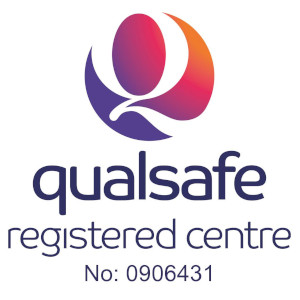Panic attacks can be sudden, overwhelming, and frightening, here, we will look at the Top Tips Managing Panic Attacks. For both the person experiencing one and those around them. They often come without warning and can be mistaken for a medical emergency, such as a heart attack.
How to Spot Autistic Burnout
Introduction: How to Spot Autistic Burnout
Autistic burnout is a real and often misunderstood experience, one that goes far beyond feeling tired or overwhelmed. How to spot autistic burnout can present as intense physical, mental, and emotional exhaustion that can occur when an autistic person is pushed beyond their limits for too long, often from masking, sensory overload, and constant social demands.
Creating Inclusive First Aid Courses for Autistic Learners
First Aid is a life-saving skill that everyone deserves to learn. Creating inclusive first aid courses for autistic learners creates inclusivity and a better classroom learning experience. But for many autistic individuals, traditional First Aid courses can feel overwhelming, confusing, or inaccessible. With the right awareness and a few thoughtful adaptations, trainers can create inclusive, supportive spaces that help autistic learners thrive.
Tantrums vs Meltdowns: Helping Your Autistic Child
Have you ever witnessed a child screaming, crying, or throwing themselves on the floor and wondered; —is this a tantrum or a meltdown? Tantrums vs meltdowns: Helping Your Autistic Child, is what we are going to explain in this blog.
How to Treat Eye Injuries
Would you know how to treat eye injuries?
Could you identify if an eye injury is severe and needs hospital treatment?
Can Head Injuries and Concussions be Deadly?
The Importance of Recognising and Responding to Head Injuries
Head injuries can happen anywhere! We often ask; can head injuries and concussions be deadly? While a head injury can happen at home, in the workplace, on the sports field, or even during everyday activities sometimes they can be serious.
Top 5 Mistakes Companies Make with Health and Safety
Health and safety compliance is essential for every business, regardless of their size or industry. There are top 5 mistakes companies make with health and safety. Don’t be this company!
Not only having health and safety compliance to protect employees from potential harm, but it also safeguards the company from legal repercussions, fines, and damage to its reputation. Yet, many organisations fall short in this critical area, often due to common and avoidable mistakes.
10 Tips to Help Neurodivergent Employees
In today’s world of employment and working in any workplace it can be challenging in many ways. Here we look at 10 tips to help neurodivergent employees. Creating an inclusive environment isn’t just a moral obligation—it’s a smart business decision.
The Key Information You Should Know About Diabetes
Diabetes is a long-term condition that makes it hard for the body to control blood sugar levels. If you have diabetes or are worried about getting it read on to learn the key information you should know about diabetes, knowing the different types and how to manage them is key. This guide will help you understand diabetes better and take charge of your health.
Treating Minor Injuries at Home
Minor injuries like scrapes, burns, or sprains happen to everyone. Treating minor injuries at home and knowing the correct ways can prevent bigger problems and help you heal faster. This guide will teach you how to safely handle common accidents and injuries at home.



